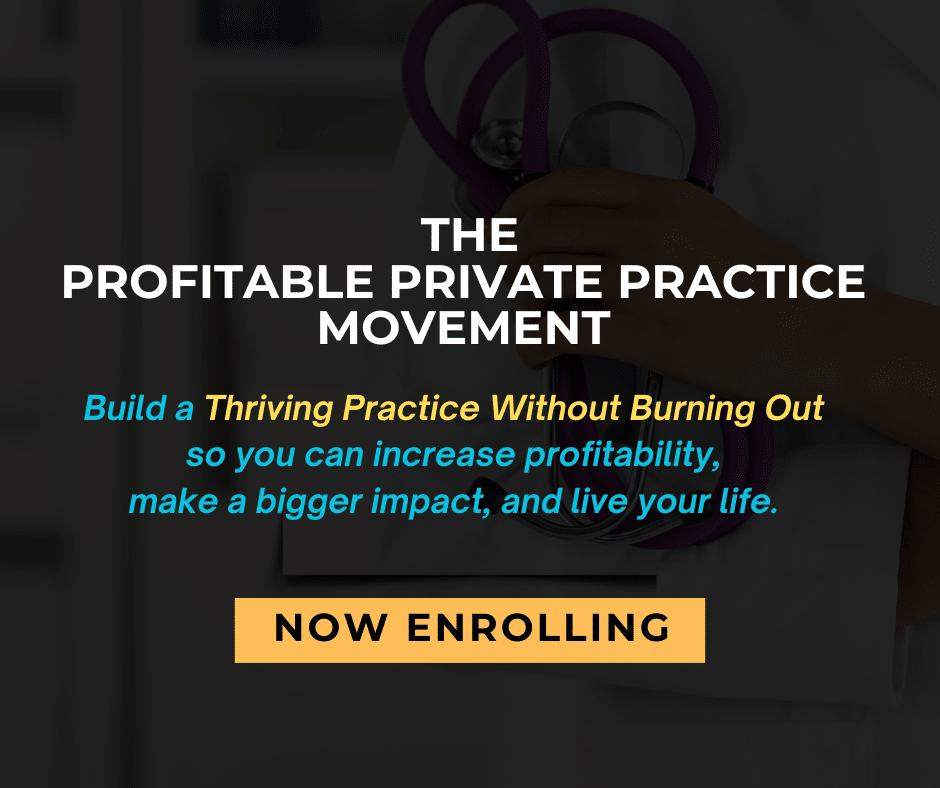The truth is that we, as doctors, make a lot of money. While actual numbers vary depending on what source you read, Glassdoor estimates the average salary of a physician in the U.S. is $226,225. That’s the median number, the midpoint of the range.
With additional pay in the form of cash bonuses, commissions, tips, and profit sharing to the tune of $25,710 a year, that bumps the average salary a doctor makes to just over one-quarter of a million dollars. Even an entry-level doctor enjoys a salary between $180,640 and $233,367, according to salary.com.
The Bureau of Labor Statistics notes that out of the top 20 highest salaried occupations, 13 belong to the healthcare sector. With an estimated 135 specialties and subspecialties, the healthcare field clearly offers opportunities to build wealth.
But building wealth is an interesting concept. Just because doctors get paid a healthy amount of money doesn’t mean every doctor is wealthy. But it sure is a step in the right direction.
Medscape reports that 51% of physicians accumulate a net worth of over a million by the time they reach 50, not including the value of their homes. In Sarah Fallow’s The Next Millionaire Next Door, she found that those who did accumulate wealth had two things in common: a similar mindset about money and patterns of behavior that led them to greater prosperity.
Let me give you the Coles Notes on the four characteristics of those who take what they have and build wealth:
- Frugality
- Self-discipline
- Passion
- Planning and monitoring
Enter the Tax Man and Other Factors
While it’s great to know that you’ll be making good money after years of schooling, the average doctor will walk away with $200,000 of debt that they’ll need to repay.
Then there’s the three to seven years of residency where you’re not incurring more debt, but you’re making only an average income of $60,000 a year. Most physicians don’t start to make their potential salary until they’re in their early 30s.
There’s a lot to be said about the best strategies for paying off this hefty debt, but this isn’t the time or place. Let’s unpack the actual amount doctors make — after tax.
The Medscape Physicians and Taxes Report 2022 surveyed more than 1500 U.S. practicing doctors and found “the average physicians’ annual federal income tax bill is in the country’s top 10%, that doctors have a steep marginal tax rate, and that 1 in 5 of them have been audited.”
The median tax rate for physicians in 2021 is 35%, whether they filed independently or jointly with a spouse. In the same year, physicians paid $76,000 in federal taxes plus $13,000 in state taxes. That’s a whopping $89,000 of tax the government takes every single year.

Of course, there are legitimate deductions that can be used as tax breaks, although as of last year, the deduction for student loans is limited to $2,500. Still, deductions like contributing to a pre-tax 401(k) account, contributing to charity, paying interest on a home mortgage, and writing off eligible business expenses all help whittle down the gross income you need to declare.
Other ongoing costs we have to pay every year typically add to anywhere from $2,000 to $10,000 each year. Things like maintenance of certification, medical license fees, continuing medical education, DEA licenses, membership fees, malpractice insurance, and more.
There’s such a broad range of variables when it comes to calculating how much the average doctor makes after paying taxes; it’s almost impossible to come up with anything close to an accurate figure.
Once all is said and done, yes, we’re among the highest earners in the country, and we make millions after tax over the course of our careers. But, between ongoing costs and a 35% tax category, it’s a good idea to look to other ways to build our financial portfolio and take advantage of the “good money” we make.
“If you make a six-figure income each year and spend it all, you are not getting wealthier; you are just living high. Wealth is what you keep.” – Thomas J. Stanley, The Millionaire Next Door.
Building Wealth With Real Estate Investments
For doctors, investing in real estate is a great way to create wealth, allow you to reduce your workload, and focus on retirement.

The basic formula for building wealth is to buy investments that hold their value, exceed levels of inflation, and appreciate over time.
Like real estate.
Types of Real Estate Investing
Real estate investing can be broken down generally into two separate categories:
- Active
- Passive
Active real estate investing occurs when an investor is hands-on when buying and managing properties. This type of investment includes vacation homes, a home for a dependent, or a rental home.

Passive real estate investing occurs when an investor puts money into a real estate deal without doing the hands-on work. This type of investment includes real estate investment trusts (REITs), crowdfunding opportunities, remote ownership, and real estate funds.
Pros and Cons of Active and Passive Real Estate Investing
Both active and passive real estate investing strategies have their pros and cons. Benefits for doctors who invest in real estate are:
- You can generate a steady passive income
- Real estate appreciates over time
- You can deduct ownership and business expenses
- Unique tax benefits like depreciation
- You can use the power of leverage to grow your holdings
- Real estate builds equity and provides a hedge against inflation
You can choose to rent your property on a long-term or short-term lease. Once you rent your property, you’ll be the landlord responsible for communicating with the tenants and fixing and maintaining the house unless you hire a maintenance service (which will cut into your profits).
Long-term leases have the advantage of creating a steady cash flow that pays for property expenses. The key is to find the right tenants who will pay the rent on time, not damage your property and get along with the neighbors.
Short-term rentals can be ideal for vacation properties, and you can typically charge more for a short-term rental than a long-term one. Of course, there’s more work involved in short-term rentals, but the rewards can be significant.
If you’ve ever watched HGTV, you’ll know that house flipping is all the rage right now. Typically, the ideal way to flip a house is by doing as much work as possible to update the property. The challenges of creating a profit with a house flip come with keeping costs in line so you can sell and make the investment of time and money worthwhile.

Some of the drawbacks for doctors to consider as they invest in real estate are as follows:
- It takes money to make money in real estate
- It takes lots of time
- Real estate investing ties up your capital long-term
- The tax benefits don’t always apply
- Headaches and problems can occur
- There are many risks
The capital requirements to get into the real estate game can be daunting. You’ll need a down payment plus closing costs and money to make any necessary repairs and updates. You’ll also need money to cover mortgage payments, property taxes, insurance, and maintenance.
Real estate is not a short-term investment. It takes time for properties to appreciate, and if, for some reason, you need to liquidate your investments for emergency funds, it’s not always easy to sell a property on demand.
In most states, the law leans heavily in favor of protecting tenants’ rights. If you are unfortunate enough to have a tenant who doesn’t pay the rent or neglects or damages your property, you’ll have to work hard to evict them. Check your local state law regarding tenant/landlord rights to see your legal options if you rent to a problem tenant.
While historically, investing in real estate has been an excellent way to build wealth, it’s not without risks. You could buy the wrong property at the wrong time or find yourself overleveraged. You will need to service your mortgage in spite of market dips, property vacancies, unexpected costs, or any other problem that crops up as a homeowner.
Paying Taxes on Real Estate
If we’re going to consider the impact taxes have on our income as physicians, we should also look at the tax implications of investing in real estate. There are few options for reducing your W2 taxes, as we saw above, but the good news about real estate investing is that there are ways to help you pay little or no tax on the income you make with these types of investments.
First, you can deduct expenses that are tied to operating, managing, and maintaining your real estate investment. You can deduct the following:
- Property tax
- Insurance
- Mortgage interest
- Property management fees
- Repairs and maintenance costs
- Legal and accounting fees
- Property depreciation
Another type of allowable deduction is called a “pass-through” deduction. This lets you deduct up to 20% of your “qualified business income (QBI) on your personal taxes. This deduction began in 2018 and at this time is scheduled to last through 2025 unless Congress decides to extend it.

A brilliant way to reduce your taxes as a physician is through “real estate professional status” (REPs). This works especially well in a partnership between spouses if one partner can manage the family’s real estate investments full-time while the other focuses on their medical career.
In a marriage or partnership where one spouse earns $150,000+, and the other spouse becomes a REP, any losses from the real estate “business” can be set against the other spouse’s income. For example, suppose Dr. Dad makes $350,000 plus bonuses, and REP Mom generates $150,000 in losses from their real estate business (even if the properties are cash flow positive). In that case, they can file tax jointly and deduct the real estate losses from the medical salary. Now they’ll pay income tax on $200,000 rather than $350,000. Quite a tax savings.
There’s a lot to learn about the tax world of real estate, but you don’t have to do it by yourself. Hire an accountant who is familiar with complicated real estate taxes and exemptions. You can educate yourself along the way while your accountant ensures you stay straight and narrow.
Best Active Real Estate Strategies
Over the years, real estate has proven to be an excellent long-term strategy for building wealth. It typically outperforms other assets in terms of value appreciation and, unlike the stock market, isn’t as susceptible to short-term volatility.
Before you jump into the real estate investing pool, there are a few things to consider.
Your tolerance for risk is possibly the first question you need to determine before investing in real estate. Every type of investment carries some level of risk, and it’s important to be clear whether your tolerance is high, low, or somewhere in between.

The safest types of real estate investment are those where your property is located in a highly desirable area and you find a long-term, financially stable tenant. A higher risk tolerance lets you buy a property that needs work, requires a change in zoning, or is in a desirable up-and-coming area of town.
What matters most is that you are aware of your personal risk tolerance and work within that.
Your budget constraints are equally as important a factor as your risk tolerance when it comes to investing in real estate. You’ll want to know, down to the penny, what it will cost you to purchase and carry a particular piece of property.

Freddie Mac guidelines say that for an investment property, the maximum debt-to-income ratio is 45%. As well, the amount of down payment you’ll pay for an investment property is 20% to 25%, and sometimes as much as 40%.
Then there are the carrying costs of holding your investment. If you are renting the property, ideally, the rent payments will cover the mortgage, insurance, and property taxes, as well as enough to build up a fund for repairs and maintenance as well as a fund that will cover the monthly costs if there’s a gap between tenants.
The time you have available needs to be realistically assessed. Owning and holding additional properties can be time-consuming. Even passive real estate investing requires time and knowledge.
You’ll need to learn about things like landlord-tenant laws, fair market rents, and keeping up with repairs and maintenance on your property. Finding properties that work with your budget and your risk tolerance also takes time, and there will be a lot of number crunching involved to ensure this is the right project for you.

When you assess the pros and cons of investing in real estate as a doctor, it seems that there are more pros than cons based on recent history and looking forward to the future.
Knowing you have the flexibility to invest actively or passively, depending on your temperament, time constraints, and available funds, gives you many options to build not only a comfortable present but a secure future.


